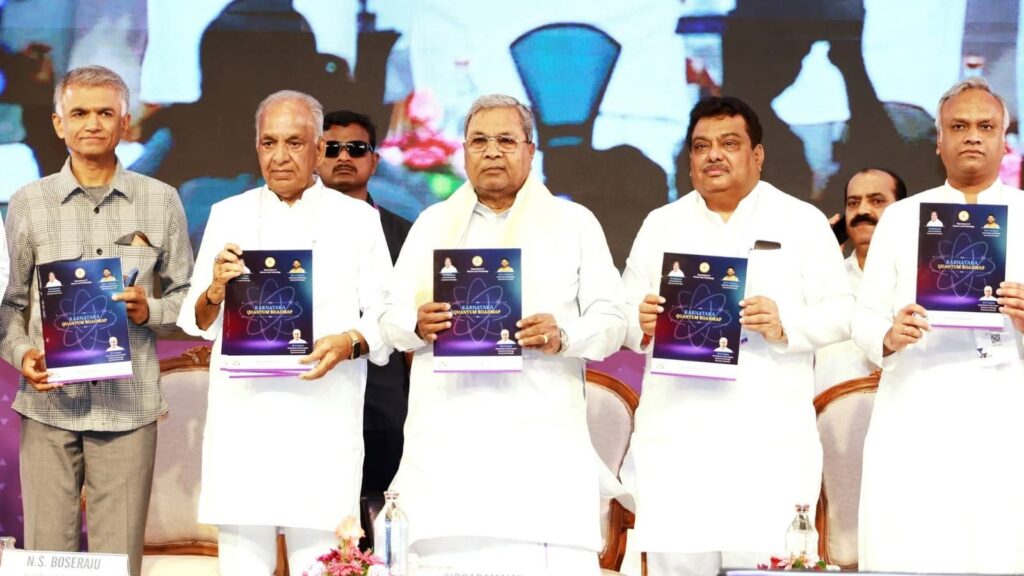The Karnataka government Thursday unveiled a Rs 1,000-crore Quantum Mission with a vision to transform the state into a $20 billion quantum economy by 2035 and establish it as the “quantum capital of Asia”. As part of this mission, it announced the establishment of Q-City (Quantum City) near Bengaluru – a futuristic integrated hub for quantum technology innovation, manufacturing, research, and talent development.
The announcement was made during the inauguration of the Quantum India Summit 2025 held in Bengaluru, co-organised by the Department of Science & Technology (DST) and the Indian Institute of Science (IISc). Chief Minister Siddaramaiah and Minister for Science & Technology N S Boseraju laid out the government’s roadmap to foster quantum innovation and infrastructure across the state.
“By 2035, we aim to create 10,000 high-skilled jobs and establish Karnataka as the quantum capital of Asia,” Chief Minister Siddaramaiah said.
He added that a Quantum Technology Task Force will be constituted to guide policy frameworks, while the government will also launch a Quantum Venture Capital Fund to back more than 100 startups and generate at least 100 patents in the sector. The overall initiative is expected to create over 2 lakh direct jobs.
Minister Boseraju said, “As part of this effort, our government will establish Q-City where world-class facilities will be provided. This city will integrate academic institutions, innovation centres, manufacturing clusters for quantum hardware, processors, ancillary units, and R&D hubs supported by quantum high-performance computing (HPC) data centres.”
The minister said the state is already home to India’s first commercially deployable quantum computer, built locally in Bengaluru by a team of Kannadigas. “This computer is not just a proof of concept but a testimony to determination. Developed indigenously, it is already delivering commercial services,” he added.
The state has already set up a Quantum Research Park at IISc Bengaluru, which has supported over 55 research and development (R&D) projects and 13 startups, while training more than 1,000 quantum professionals annually. To boost its activities, the state has sanctioned an additional Rs 48 crore in funding. Karnataka Thursday also announced plans to establish India’s first Quantum Hardware Park, along with four innovation zones and a dedicated quantum chip fabrication facility, expected to be operational by the end of this year.
Story continues below this ad
“Quantum chip fabrication capability will be operational by the year-end. This will enable domestic production of advanced quantum components and devices,” Boseraju said. The minister also emphasised the need for policy flexibility from the Centre to enable state-level innovation.
“The Government of India has launched the National Quantum Mission with an outlay of Rs 6,000 crore. For its successful implementation, the Centre must allow Karnataka to lead with innovative and decentralised approaches,” he said, addressing DST Secretary Abhay Karandikar.
To develop talent across the state, the science and technology minister said, Karnataka will roll out a quantum curriculum at the higher secondary level in both English and Kannada under its Stream Labs initiative. The state will also introduce quantum skilling programmes in 20 colleges, expand DST-funded PhD fellowships to 150 students, and take these programmes to tier-2 and tier-3 cities and over 20 universities. The roadmap is structured around five strategic pillars: talent development, R&D pilots, infrastructure, industry support, and global partnerships.
Karnataka also aims to develop 1,000-qubit quantum processors and pilot real-world applications in healthcare, cybersecurity, governance, agriculture, and early disease detection.


